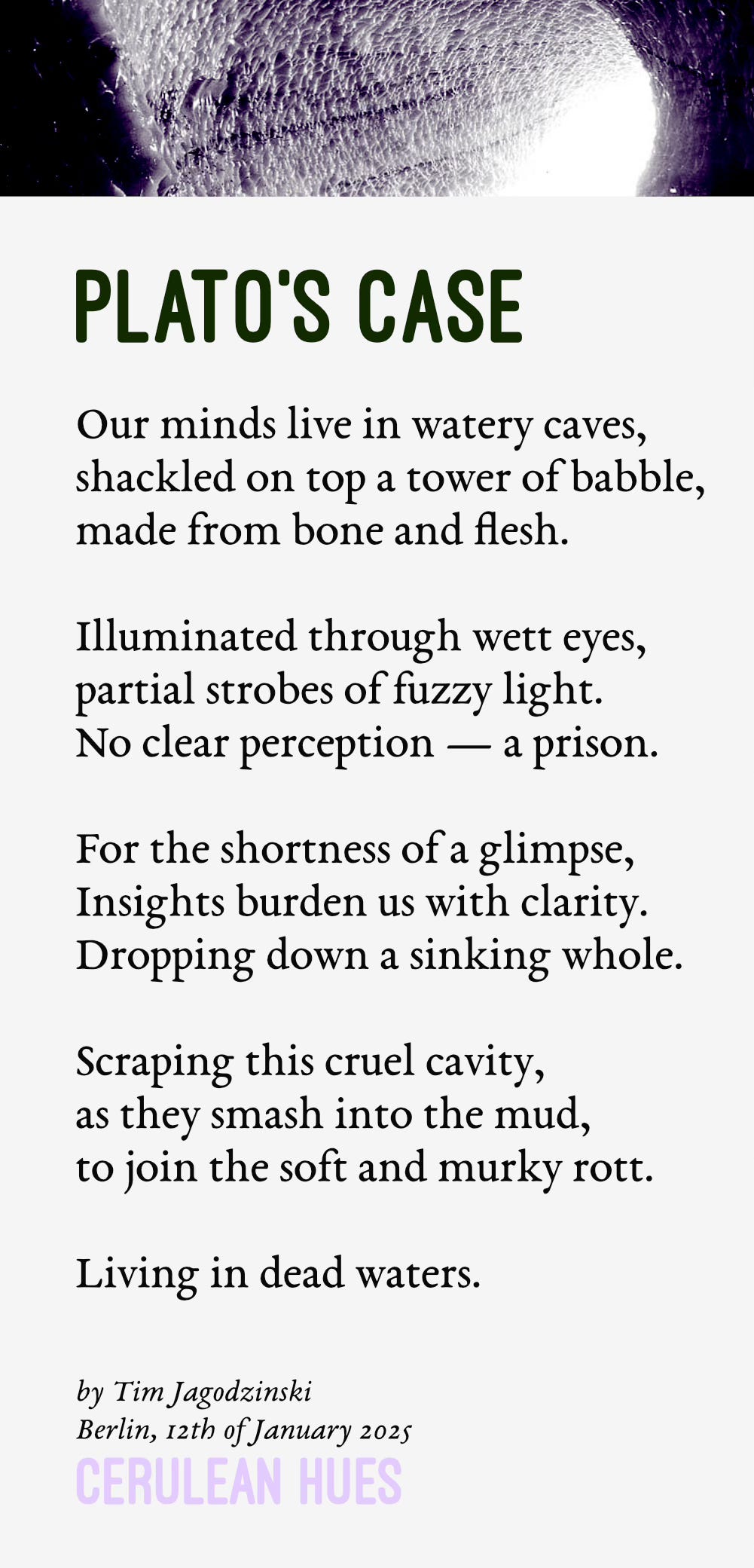Plato's Case - Monday Morning Poetry
We as humans are born into a cave, but it has no exit. All our perceptions are limited by the ability of our senses and are filtered by our brains. "Plato's Case" explores this condition.
Thoughts
Plato's allegory of the cave is a famous thought experiment. Imagine living in a cave, where you see things only via the shadows falling through the entrance, like everyone else around you. One day, you manage to leave the cave and see the world as it really is. You go back and tell your friends in the cave about the real world, its colours and clearness. They laugh about you and might get aggressive. The only things that are real and can be real are the shadows they saw all their lives.
The negative lesson of this story is that people won't believe your insights, even if they are true; they are too invested in what they know is true. The positive thought in the allegory is that there is a cave exit for us to go to, to see the world, and leave.
We as humans are born into such a cave, but it has no exit. All our perceptions are limited by the ability of our senses and are filtered by our brains. Modern people see themselves as their brains, but brains swim in water, encapsulated from contact with the real world. All our brains know are electrical impulses. We cannot leave to see the true state of the universe like the person in Plato's allegory could. This is the nature of the prison our mind is in.
If you want to see this dilemma at work, pay attention to people and how people struggle to understand something, that is obvious to others. Even explanations might do nothing, as words often end up being futile devices. Communication is not much more than a person knocking on a cave wall to illustrate the beautiful reality of their emotions and experiences.
Most people don’t even notice the prison they and other people are in. We judge people as if they are free agents and just need to see, what we have seen. When they are already deeply invested in their version of the world and cannot see what you saw. We are stuck in our caves knocking.
This situation should trigger compassion for the person, who isn’t you. Instead, it evokes anger more often than not — excused by our limited understanding.





